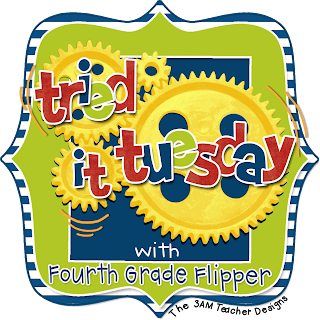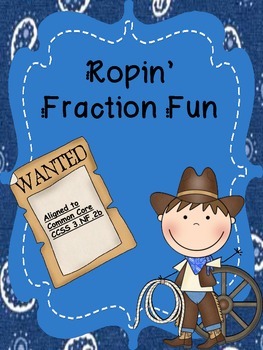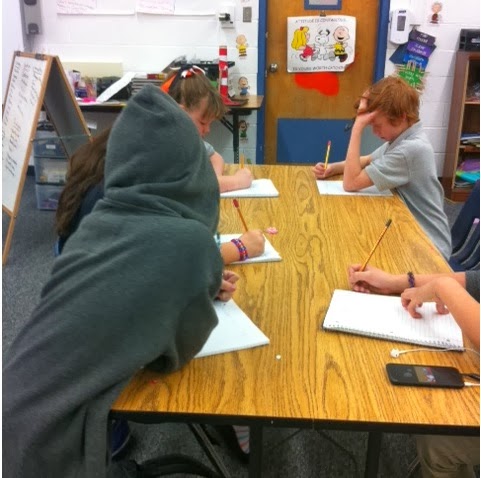
I am linking up with Fourth Grade Flipper for Tried it Tuesday to share a way that I taught some of my students how to convert improper fractions starting with a hands on method and moving to more abstract thinking.
I had the students use fraction strip pieces to model the problem, in this case 7 different 1/5 pieces.
Then I had the students place them along a whole unit. In this case they could see it was equal to one whole and 2 1/5 pieces or 1 2/5.
After we practiced some problems using the manipulatives, I had them convert it to drawing. The drawing above is no where near to scale, but I told them as long as they understand that they are equal parts it is ok to just make a rough sketch. They drew out figures representing fifths, and then filled the in to get the 7/5. Again, they could see that it equaled 1 2/5.
We began to get a bit more abstract by not drawing out the original "pieces" but instead labeling the wholes above.
As the students got better, they were able to skip count and draw boxes as representations. I think this was so much easier to explain conceptually rather than starting with the idea of dividing the numerator by the denominator (which is how I was taught). They actually understood WHY you divide the numerator by the denominator.
Since I learned math a very traditional algorithm way, I love trying new hands on ways to explain mathematical concepts! How do you incorporate concrete methods into your math lessons?












































